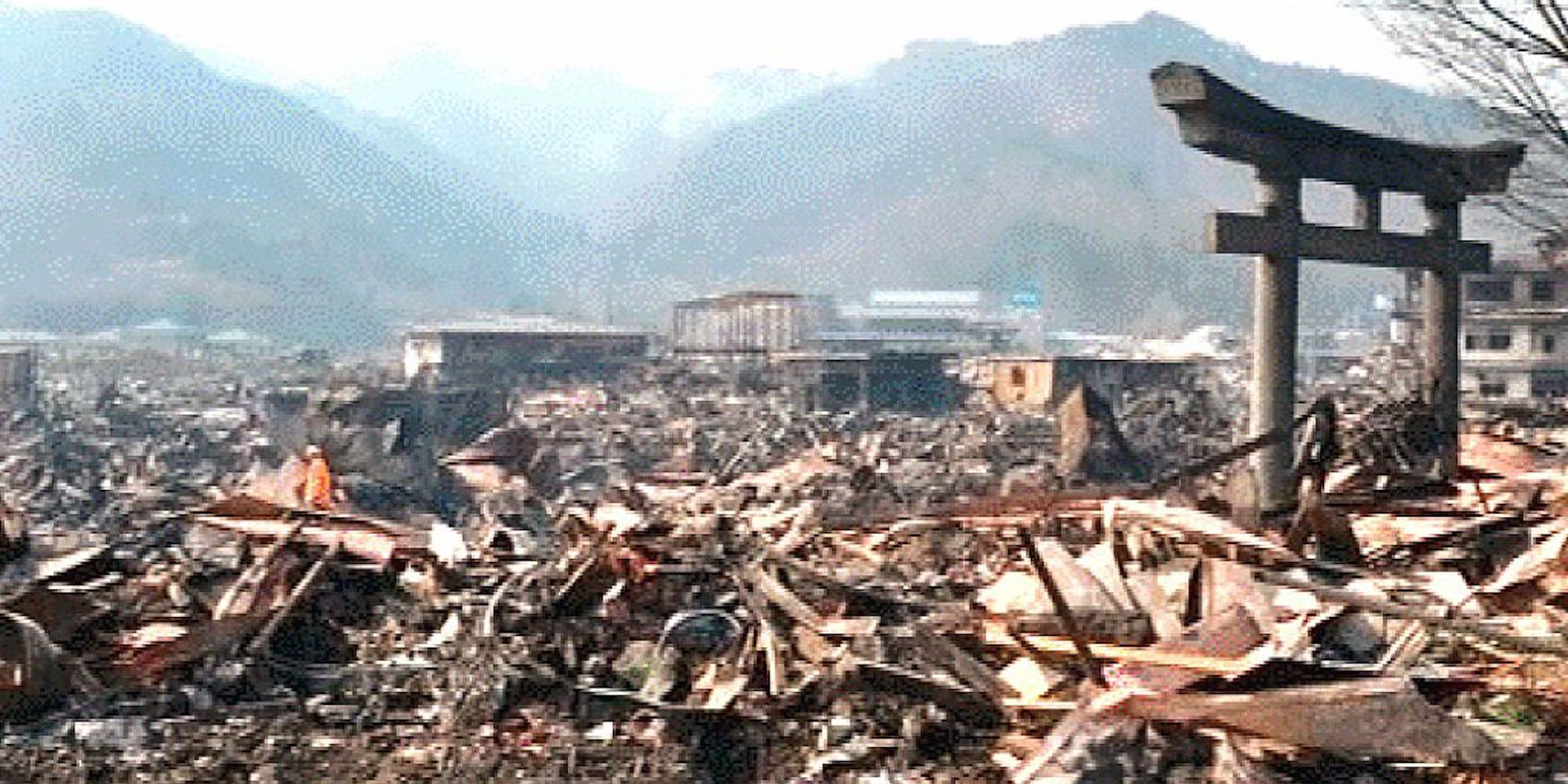- On August 6, 1945, the B-29 Superfortress bomber Enola Gay dropped an atomic bomb on the Japanese city of Hiroshima.
- It was the first atomic-bomb attack in history and destroyed the city. It is thought to have killed 80,000 people immediately, with tens of thousands more dying later of radiation sickness and injuries.
- Japan surrendered after a second atomic-bomb attack on the city of Nagasaki three days later, bringing World War II to an end.
- Toward the end of his life, the Enola Gay’s pilot, Paul W. Tibbets Jr., was unrepentant. “I thought, yes, we’re going to kill a lot of people, but by God we’re going to save a lot of lives,” he said in 2002.
- Visit Business Insider’s homepage for more stories.
Early in the morning of August 6, 1945, a US Air Force B-29 Superfortress, the Enola Gay, took off from its base in Tinian, near Guam, and headed for the city of Hiroshima in southern Japan.
It was carrying a 9,700-pound top-secret bomb named Little Boy. Its pilot was Paul W. Tibbets Jr., who led a crew of 12 men on a mission that would change the history of the world.
Tibbets had been named the plane after his mother.
Hiroshima had already been woken by several air-raid sirens that morning, which had proved to be false alarms.
So when the Enola Gay approached at 8:15 a.m., many thought it was a reconnaissance plane. By the time the siren sounded, the first atomic bomb to be used in war had already dropped.
In a blinding flash, and with temperatures as hot as the sun, the bomb detonated. It destroyed a 5-mile radius, killing an estimated 80,000 people.
Tens of thousands more later died of radiation sickness and injuries.

The Enola Gay was 10 miles away when the blast went off, but it still felt the shockwaves. The crew recalled the jolt from the force of the explosion and said it was like coming under enemy fire.
Three days later a second, more powerful atomic bomb was dropped on the city of Nagasaki, and Japan surrendered, bringing World War II to an end.
Debate has raged ever since over whether the US was right to launch the attacks. Some have argued that the bombings were an inhumane targeting of civilians and that there were other options available. Others contend that such devastation was necessary to force Japan's surrender and avoid a deadly military campaign through the Japanese mainland.
But how did the explosion weigh with the 12 men aboard the Enola Gay who dropped the bomb that day?

Tibbets and other crew members maintained to the end of their lives that the bombing was necessary, saying it ultimately saved lives.
"I knew we did the right thing because when I knew we'd be doing that I thought, yes, we're going to kill a lot of people, but by God we're going to save a lot of lives," Tibbets told the writer Studs Terkel in a 2002 interview. "We won't have to invade [Japan]."

The US military had calculated that an invasion of Japan could have cost millions of US and Japanese lives. So, the reasoning goes, the attacks were necessary as an overwhelming show of force to end the war.
As for the loss of civilian lives, Tibbets, who died in 2007, was unrepentant.
"You're gonna kill innocent people at the same time, but we've never fought a damn war anywhere in the world where they didn't kill innocent people," he told Terkel.
"If the newspapers would just cut out the s---: 'You've killed so many civilians.' That's their tough luck for being there."
Some of the members later came to express regret and described being haunted by the destruction they caused.
"I pray no man will have to witness that sight again. Such a terrible waste, such a loss of life," Capt. Theodore van Kirk, the plane's navigator that day, told an interviewer in 2005. "We unleashed the first atomic bomb, and I hope there will never be another."
He added: "I pray that we have learned a lesson for all time. But I'm not sure that we have."
To date, Hiroshima and Nagasaki are the only places to be targeted by a nuclear bomb in war.
Cold War treaties halting the proliferation of nuclear weapons have begun to unravel, however, lending fresh urgency to questions on the morality of nuclear conflict.

